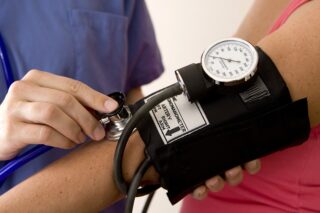
It’s now common knowledge that obesity significantly increases the risk for heart disease, but what many people may not know is that obese patients are also far more likely to develop atrial fibrillation as well. Maintaining a healthy weight plays an important role in all areas of heart health, and chronic obesity is one of the most common and significant risk factors. The good news is that the American Heart Association found that obese patients who lost as little as 10% of their body weight were six times more likely to get their AFib under control.
A Heart and Weight Healthy Diet
Eating foods that are naturally heart healthy is the first step to losing weight for obese patients who are concerned about AFib. Foods that are good sources of monounsaturated fats and omega-3 fatty acids such as nuts, fish, and olive oil should be your main source of fat intake, and meats rich in saturated fats should be eaten sparingly. By stocking your pantry and fridge with these and copious amounts of fresh fruits and vegetables, you’ll be doing a favor for your heart and your waistline.
Physical Activity Comes in Many Forms
One of the main impediments to overcoming obesity is people thinking they need a complicated workout routine. Physical activity is incredibly important to maintaining a healthy weight and a healthy heart, but it doesn’t require joining an expensive gym, ordering complex home equipment, or even lifting weights. If you’re currently leading a sedentary lifestyle, then any activity is an improvement. Simply going on long walks with your dog, taking the stairs instead of the elevator at the office, or doing a few sets of pushups in your living room can jump start your weight loss.
Keeping an Eye On Your BMI
Body Mass Index (BMI) isn’t a perfect measurement (it can overstate risks for people with significant muscle mass and understate risks for people with a normal weight and a high percentage of belly fat), but it is an important indicator of obesity for many patients. To calculate, divide your weight in pounds by your height in inches squared, and then multiply by 703. If the result is over 30, you are in the range for obesity and should begin a weight loss plan as soon as possible. If your number is between 25 and 30, you may be overweight and should focus on not gaining additional weight and forming a long-term, healthy weight loss plan.
AFib and Your Heart
If you have concerns about your weight and AFib, Dr. Dilip Mathew of Heart Rhythm Consultants can help you achieve your optimal heart health. Schedule a consultation today to learn why living at a healthier weight is the best thing you can do for your heart.



